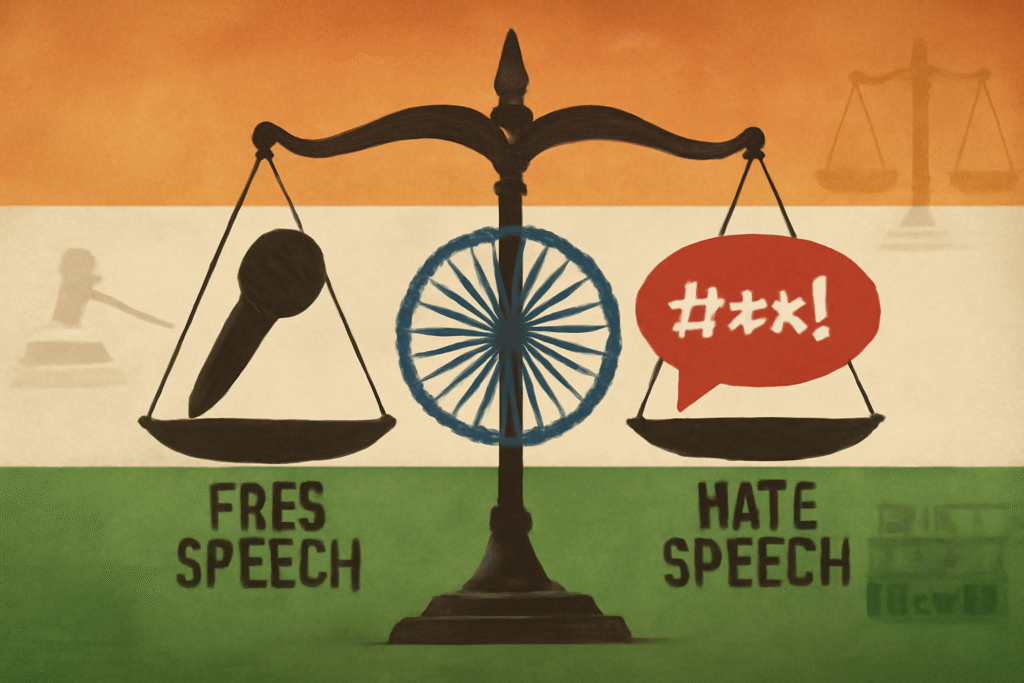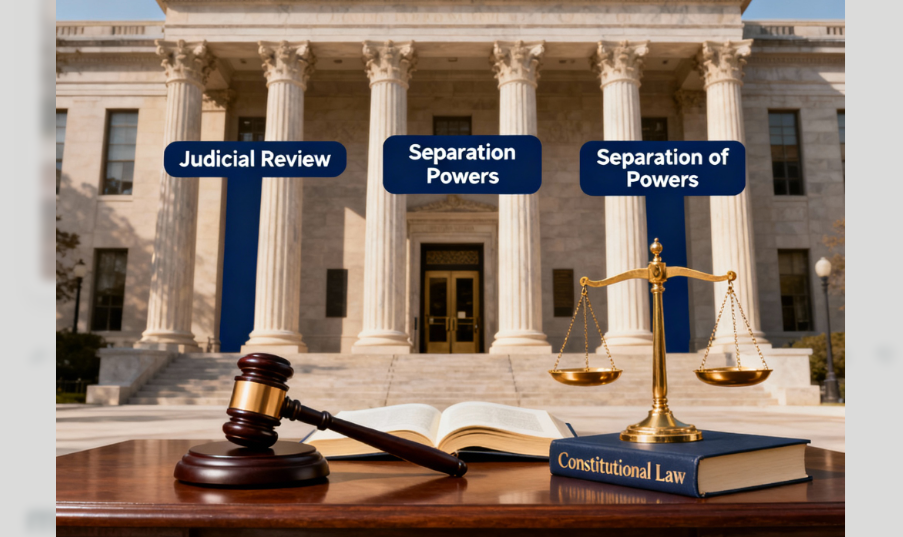Published on: 31st October 2024
Authored by: Viswa ganesh K
Dr. Ambedkar Law University School Of Excellence In Law
Abstract
Mediation is a future of litigations that provides the opportunity to amicably clear the disputes between the parties. It is also a legal mechanism as related to the court system in all over the world. The parties sit together and talk to each other like friends and neighbours. Globe is in one-step ahead to make mediation mandatory for all legal disputes. Mandatory is an attempt not a forceful tool. Mediation is an alternate dispute resolution that gained support from the people as well as advocates. The public should avail this opportunity before entering into the litigation process which can save their time from procedural aspects of litigation. In our country, the pre-mediation process is there in laws but not effectively implemented all over the country. India is still in progress of it, because of it believes in efficiency of the orders of courts. The Doctrinal Research paper fill addresses the future of mandatory mediation and its loopholes and public awareness towards it and the possible ways to implement mandatory mediation in parallel to the litigation system in all the courts across the country.
Keywords: Informal, Court, Dispute resolution, Pre-institution, Speedy settlement.
Introduction
Mediation is an alternative dispute resolution mechanism that is practised across the world. It is an informal way to solve disputes arising among the parties from any field. It is like the traditional panchayat system where the leaders of villages would solve the issues of the people. It avoids the enmity between the parties and ensures the benefits to both of them. Further, it reduces the pendency of cases in the courts.
Mandatory mediation is a way to compromise the parties among themselves. Most of the countries in the world made mediation mandatory as to reduce delay in settlement. It is successful and agreed upon by the people, legal professionals, and the Judges of those countries. In India, it is in the hands of the parties whether to approach the courts or to avail of this alternate dispute resolution mechanism.
The judiciary system has made no attempt to make mediation a mandatory one. The reason behind this is the ineffectiveness of the pre-mediation process in our country. It is in the Acts of law in the paper, but not implemented in the practical world. It is easily accessible, cost efficient and quick resolution services in the field of law for mutual Justice.
“Mandatory is an attempt not a forceful tool.”
Definition
Joseph Grynbaum defined, “An ounce of mediation is worth a pound of arbitration and a ton of litigation.”
“A private informal dispute resolution process in which a neutral third party, the mediator helps disputing parties to reach an agreement is called mediation” as per the definition of Black’s Law Dictionary.
Types Of Mediation
- Court referred Mediation
The court may refer the case to mediation which is pending before it for long time. The disputes related to matrimonial such as divorce is referred.
- Private mediation
The mediator as a person who is appointed to amicably conduct the session of mediation from court to the general public, corporate, government sectors for to solve their conflicts.
Stages Involved in Mediation
In order to avoid such barriers, it involves the four stages of process of mediation:
- Mediator’s opening statements
Mediators introduce themselves and clearly elucidate the process of mediation. Mediator explains the ground rules of mediation. Following that the parties introduce themselves.
- Joint session
It creates a chance for the parties to hear themselves. The mediator identifies the areas of agreement and disagreement.
- Separate session
It is a confidential nature session. Specific information is collected during this session. Common areas of interest of the parties are identified in this process.
- Closing Session
Once the parties arrive upon mutually agreed solution, the mediator orally confirms the settlement and a written agreement is made. If the parties do not arrive upon a mutual statement then the case will be transferred to the referral court.[1]
Mandatory Mediation In the World
- European Union
The European Union EU introduced “Mediation Directive” for assisting its member countries to approach mediation in civil and commercial cases. This directive applies for cross border transactions such as trade, commerce and administrative matters etc. The European Union Court of justice in the case of Menini and another v. Banco Popolare Società Cooperativa draw the inference that mandatory mediation as condition before approaching litigation does not preclude EU ADR guidelines.
- Italy
Italy’s mandatory mediation made its impact all over the world. It had five different types of mediation. Italy is about to introduce a model opt for mandatory mediation which might reduce the overburden of judiciary.[2] It introduced special decree for mandating mediation before initiating litigation.in civil and commercial cases.
- USA
US is the most famous country for the settlement of disputes outside the court. Many of the courts in US adopted the mediation for dispute resolution. The main reason for the adoption of mediation in US it reduces the cost spent expanding the courts and the burden of the courts. At present mediation has become the significant Alternative Dispute Resolution in United States.
- Australia
Mandatory mediation is used in Australian Civil Justice system. It uses mandatory mediation where there is large pendency of cases. Australian mediation model is more complex than Italian mediation model. The genuine method of mediation has to be approached in civil disputes.[3]
- United Kingdom
In UK mandatory mediation gives high degree of success. The Access to Justice Report, 1996 made a recommendation that it is the duty of legal professionals to elucidate to their clients about the process of alternative dispute resolution and its procedure to use.
The first case Dunnett v. Railtrack, led to the growth of mediation. The court may not compel the parties to go for mediation as it affects fair trial. But it may instruct the parties to go for mediation. Categorial mediation and discretionary referral mediation are two approaches of the mediation.
Mandatory Mediation in India
The Civil Procedure Alternative Dispute Resolution and Mediation Rules of 2003 states that the mediator is the person who facilitates the process of mediation, opens the door for discussion between the parties, guides them in determining the problems, minimizes misconceptions, elucidating matter of great importance, take a look at areas of consensus, and give rise to choices.
History
It is inferred from Mulla’s Hindu Law the basic principles of mediation are Wisdom, Reason, and Prudence. Even during the Mughal rule, Emperor Akbar depended upon his mediator minister Birbal. The most famous case was when two women claimed motherhood of a child, the Mediator suggested cutting the child into two and dividing its body and giving one-half to each woman.[4] The real mother gave up her claim to save the child’s life whereas the fake mother agreed to the division. The child was then given to the real mother.
Until the expansion of trade, commerce and industry in 21st century the British system of justice delivery prevailed. Lack of the infrastructure system to handle huge volume of caseloads led to increase in number of people approaching extra-judicial remedies instead of waiting in queues for litigation.
Pre-Institution Mediation
The Commercial Courts Pre-Institution Mediation and Settlement Rules 2018 was framed for the purpose of settling commercial disputes valued rupees 3 lakhs or more to mandatorily exhaust the Pre-institution Mediation conducted by Legal Services Institutions. Section 12A of the Commercial Courts Act 2015 deals with the Pre-Institution Mediation.
“A suit, which does not contemplate any urgent interim relief under this Act, shall not be instituted unless the plaintiff exhausts the remedy of pre-institution mediation in accordance with such manner and procedure as may be prescribed by rules made by the Central Government.”[5]
In the case of Patil Automation private ltd v. Rakheja Engineers Private Limited the supreme court held that section 12A of the Commercial Courts Act mandatory and any suit instituted which violates section 12A of the Act should be rejected.
Legislative Scope
The consensual nature of process of mediation keeps the party autonomy and information as confidential. Despite the question of voluntariness some legislative provision enunciates mandatory mediation.
- Civil procedure code (CPC), 1908
The judge has the power to refer the case to a mediation, the consent of the parties is not required. The referral judge has this exclusive power to make it compulsory. It paves the way to parties to think about the alternate manner to settle their disputes. It is a mandatory mediation is to reduce the pendency of cases in the judiciary.
It is dealt under Section 89 of the Act, a platform to pave the way for to made ADR as the greatest relief pathway.
- Mediation Rules,2003
The Mandatory mediation arises in the situation, if one party request the court to refer the case to mediation, the court look upon the circumstances and made the other party should undergo with the process of mediation. It is referred under the Rule 5 of Mediation. But the settlement came out from that must be accepted by both the parties.
The mediation rules of High courts also contain some provisions for mandatory mediation under certain situations. The matrimonial disputes are mainly refered to the mediation under compulsion of one party for to smoothly settle and rebuild their relationship as stronger.
- Consumer Protection Act, 2019
In the consumer related disputes, the court conferred that it is settled so far to refer the case to the district commission and in a later stage it is move on to the mediation centres as per section 37 of the Act.
The Chapter V of the Act shows the establishment of consumer mediation cells attached to the district commission and the State commission and its procedure are detailed.
- Consumer Protection Mediation Rules, 2020
The Rule made it compulsory that the all matters under the Consumer protection Act must be referred to mediation. It also includes some exceptions.
- Companies Act,2013
The section 442 of the Act, provides for Mediation panel to be maintained by the central government for mediating proceedings before the National company Law tribunal (NCLT). The matter must be disposed by the panel within the duration of 3 months.
Judicial Scope
In the case of Afcons Infrastructure Ltd vs. Cherian Varkey Constructions Co. Pvt. Ltd[6] Hon’ble Supreme Court interpreted the provision in a manner implementing the spirit, object and intendment of the provision 89 of CPC and laid down guidelines.
The case of Salem Advocates Bar Association vs. Union of India[7] section 89 of the Code of Civil Procedure was challenged. The Supreme court opined that nothing prevents them in informing the court that the suit may be dismissed as a dispute has been settled between the parties outside the court. The Hon’ble Supreme Court, emphasized the need to refer family and matrimonial disputes to mediation in the case of K. Srinivas vs. D.A. Deepa[8]
Suggestions
- Mediation should be mandatory in the cases involving monetary settlement.
- Mediation Should be mandatory in the conflicts arising out of negotiable instruments such as cheque, bill, demand draft, etc.
- The Implementation of Mandatory mediation in family disputes is a foundation stone for future resolving mechanism.
- The Judicial department joined hands with the central government for to create awareness to the public by conducting the various campaigns and seminars.
- The enforcement of Compulsory mediation in the cross-border disputes with the neighbouring nations should be settled in amicable manner.
Conclusion
The mandatory mediation is a future of the dispute solving mechanism for to replace the litigation process. It is the time-saving and the cost-convenient system to the people as well as the government. The friendly system started to print its footsteps in the globe. The world disputes are settled by using this ADR method, develops the friendly relationship of the nations and made them to arrive at a peaceful settlement. The large number of countries adopting this concept and implemented in a successful manner.
India, a secular nation has to look upon and take ingredients of successful enforcement of the mandatory mediation from those countries. The solving of a matrimonial disputes through this compulsory forum made the way to build and develop the concept in our nation. The concrete legislation made the friendly resolving method as mandate. It also creates awareness of the mandatory mechanism to the unawares of the nation. The Indian Judiciary has to made it as a compulsory and to give attention to the public views as to successfully resolving their pending cases inorder to create a peaceful developed nation.
“Without the mandatory mediation, the future is full of unsolved conflicts”
References
[1] Smt. P.V.Jyothirmai, Mediation and Conciliation (ADR workshop, Supreme Court, Delhi) 80-85.
[2] Bruni, https://www.concilia.it/mediation_2019 accessed Jan 24, 2024.
[3] Cutolo, “Mandatory Mediation and the Right to Court Proceedings”( International legal Journal, Australia) 131-144.
[4] K.K. Geetha, Mandatory Mediation in India (Volume 1, Galgotias Journal of Legal Studies,) 76-78 (2014)
[5] https://nalsa.gov.in/services/mediation/pre-institutuion-mediation-in-commercial-matters accessed Jan 21,2024
[6]Afcons Infrastructure Ltd vs. Cherian Varkey Constructions Co. Pvt. Ltd JT 2010 (7) SC 616
[7] Salem Advocates Bar Association vs. Union of India (2003) 1 SCC 49,
[8] K. Srinivas vs. D.A. Deepa (2013) 5 SCC 226




